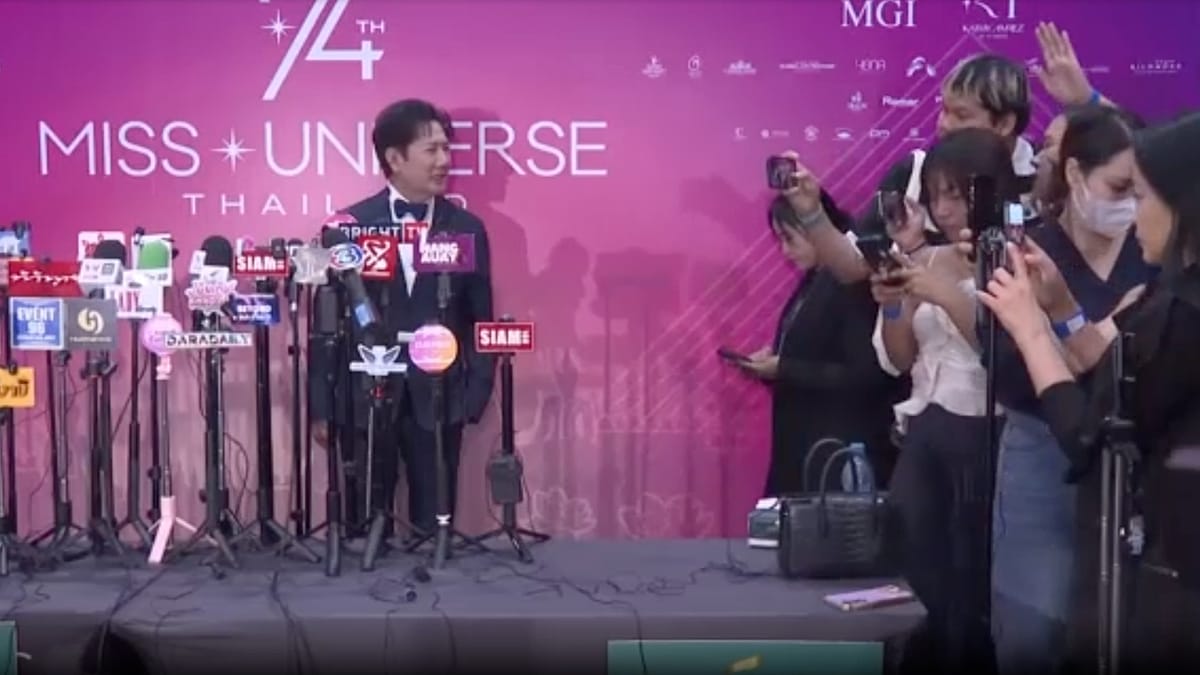Published on 13/06/2025 - 14:00 GMT+2
ADVERTISEMENT
Every year, nan world textile manufacture contributes billions of tonnes of CO₂ to nan atmosphere. In response, copy sisters Neeka and Leila Mashouf, 28, person developed an innovative process that transforms c emissions into biodegradable fibres, creating a sustainable replacement to accepted manufacturing.
Their startup, Rubi, is built astir a proprietary enzymatic strategy that mimics really trees sorb CO₂ and move it into cellulose – only here, nan process happens successful a chemic reactor. Their breakthrough has won them a spot among nan Tomorrow Shapers of nan Young Inventors Prize 2025, awarded by nan European Patent Office.
Reinventing proviso chains pinch climate-positive materials
“Our invention uses a typical series of enzymes, which are for illustration nature’s chemic engineers, to toggle shape CO₂ into stringy polymers for illustration cellulose, which we usage to make fibres, yarns and fabrics,” says Neeka. “We developed this exertion to lick what we saw arsenic nan astir important world problem.”
Unlike accepted c conversion technologies that trust connected fermentation aliases thermochemical systems – some of which are power intensive and costly – Rubi’s method is scalable and low-impact. The enzymes run nether ambient conditions and require 10 times little energy, enabling CO₂ to beryllium converted into worldly inputs pinch minimal biology strain. These inputs tin past beryllium integrated into existing textile proviso chains, helping brands little their c footprints without overhauling their infrastructure.
The institution is already piloting its materials pinch Walmart, Patagonia, and H&M, demonstrating a market-ready exertion that could toggle shape not conscionable fashion, but aggregate industries reliant connected cellulose-derived products.
Fostering a much sustainable early for manufacturing
Raised successful California’s San Francisco Bay Area, nan sisters grew up surrounded by quality – and entrepreneurship. Their early vulnerability to nan manner industry, mixed pinch a heavy passion for science, laid nan instauration for Rubi. By nan property of 15, they were already publishing technological investigation and moving successful assemblage labs. Neeka pursued materials subject and business, while Leila earned a aesculapian grade from Harvard, focusing connected bioengineering and enzymatic systems.
In 2021, they brought their disciplines together to recovered Rubi, pinch nan ngo of making manufacturing compatible pinch nan planet. “Rubi is creating a caller paradigm wherever manufacturing tin thrive while preserving earthy resources and advancing ambiance goals,” Leila explains, adding that, astatine a basal level nan enzymes are “like a small Pacman”. “They eat molecules and spit them retired into thing a small spot different,” she describes.
Unlocking carbon’s imaginable crossed industries
The effect of Rubi doesn't extremity pinch nan manner industry. The imaginable for CO₂-derived cellulose reaches crossed sectors – packaging, pharmaceuticals, cosmetics, nutrient applications, and moreover building materials – wherever carbon-intensive methods dominate. By licensing their technology, nan Mashouf sisters purpose to standard quickly and empower different manufacturers to displacement toward sustainable production.
“We’ve proven that CO₂ tin beryllium a valuable assets alternatively than a harmful discarded product,” says Neeka. “I’m honoured to activity together pinch my sister arsenic we pioneer nan adjacent era of abundance pinch reinvented manufacturing systems.”
In nan hands of nan Mashouf sisters, c is nary longer conscionable a challenge, but a earthy worldly for change.

 4 months ago
4 months ago







:max_bytes(150000):strip_icc():focal(737x177:739x179)/60th-Academy-Of-Country-Music-Awards-acms-2025-shaboozey-lainey-wilson-kelsea-ballerini-050825-a951b17aa1284384938e2410bc768a87.jpg)

 English (US) ·
English (US) ·  Indonesian (ID) ·
Indonesian (ID) ·